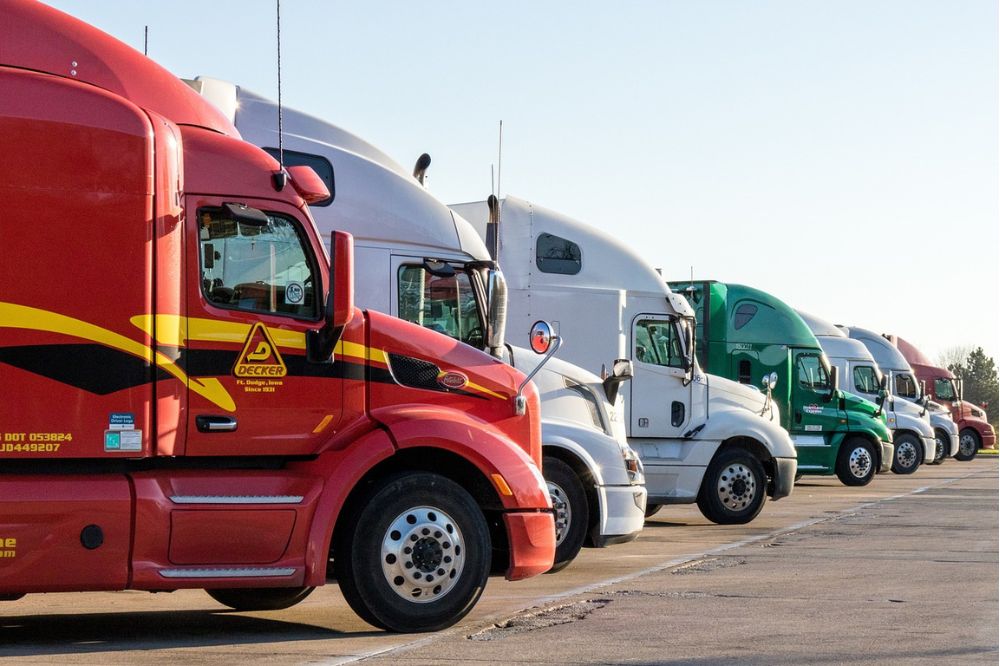
Purchasing commercial fleet insurance is the most efficient and convenient way to protect your business vehicles if your company heavily depends on commercial vehicles to operate.
Having multiple cars or heavy machinery on the road or job site increases your exposure to accidents and unpredictable events. Fleet insurance mitigates all the risks your business vehicles are exposed to in a way a standard commercial auto insurance policy doesn’t.
This guide contains everything you need to know about commercial fleet insurance policies to help you get the right coverage for your business vehicles. You’ll also find a few practical tips to reduce fleet insurance costs and save money, regardless of the number of fleet vehicles you have.
What is Fleet insurance?
A fleet insurance policy is a specialized insurance coverage for companies that require multiple vehicles for business purposes.
It covers your legal expenses and offers financial protection against bodily injury plus property damage after unforeseen incidents, the same way individually rated commercial vehicle insurance does. The only difference is the scope of coverage provided.
Instead of covering each business vehicle separately, commercial fleet auto insurance allows you to put all vehicles under one comprehensive policy. Doing this has several benefits administratively and cost-wise.
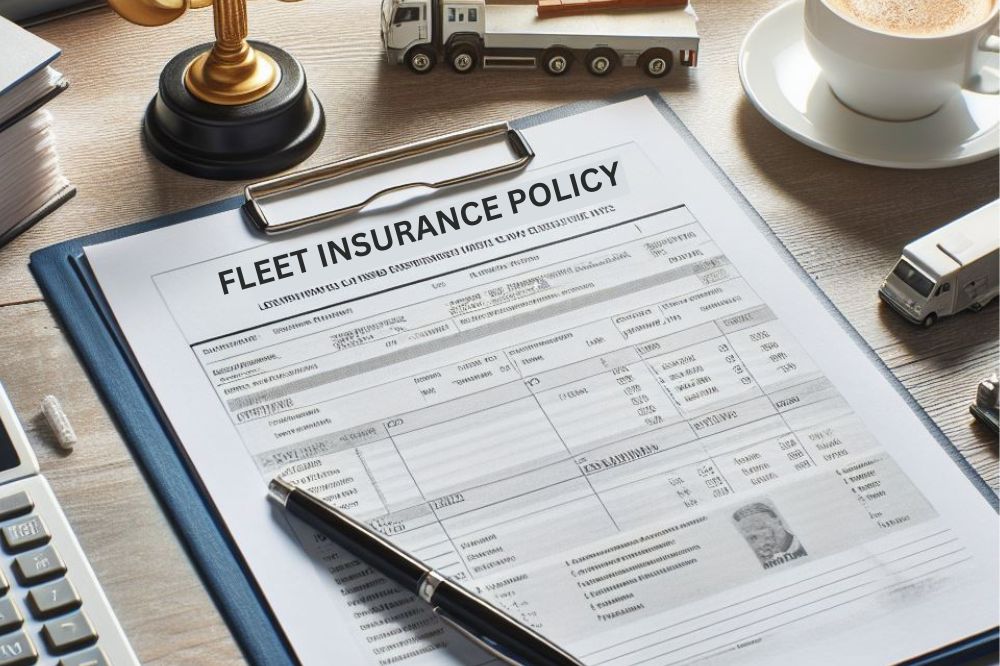
Why Do You Need Insurance for a Fleet?
As a commercial fleet business owner, you need fleet insurance because of its many advantages, such as:
Adequate Financial Protection
A Commercial fleet auto insurance policy considers the heightened risks of managing a fleet and your unique business needs to ensure your company is well-protected. Without it, you might experience financial strain, preventing your business growth.
Easy To Manage
Purchasing one aggregate commercial auto insurance policy for all your company vehicles means less paperwork for your administrative staff. It’s easier to keep track of one commercial policy than to follow up on several separate policies for each vehicle. Managing claims and adjustments for many vehicles is also more straightforward with fleet insurance.
Cost-effective
Fleet insurance premiums are usually lower than the sum of the insurance premiums of several individual commercial policies. Plus, you only need to make one monthly or annual payment instead of working with multiple payment plans for each vehicle, which may include additional transaction fees.
Flexibility
Commercial fleet auto insurance covers more than one type of vehicle in a fleet. You can customize the insurance plan to cover any combination of commercial vehicles based on your business needs. For example, your fleet vehicle insurance policy may include two cars, four mini-vans, and ten semi-trucks.
Also, fleet auto insurance lets you:
- Add or remove vehicles as your business scales.
- Enjoy driver flexibility by insuring all your vehicles in a way that allows all employees to drive them – this is different from other auto insurance policies, like personal auto insurance, where you have to specify the drivers covered under the policy.
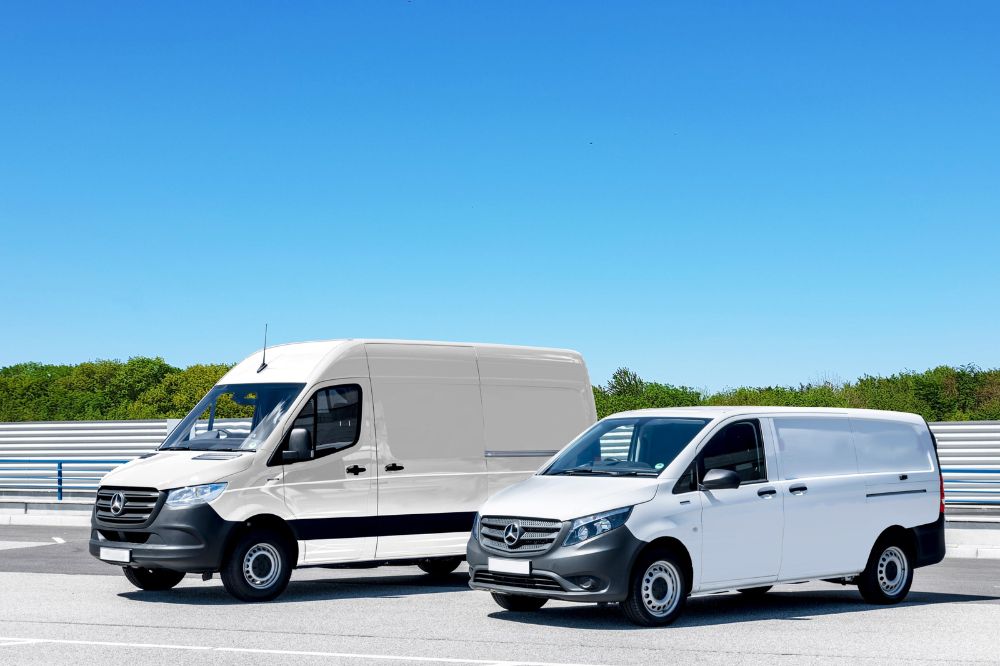
How Many Vehicles Are Needed For Fleet Insurance?
Most insurance companies place their fleet insurance coverage under two categories – small and large fleet commercial policies.
Trucking companies can decide what constitutes a small or large fleet for them. However, some insurance providers require a minimum of two commercial vehicles to qualify for small fleet insurance. In comparison, others require at least five motor vehicles.
As for large fleet insurance, you need at least 20 commercial vehicles to apply to some insurance companies and 30 cars to others.
Types of Fleet Insurance Coverage
Some essential commercial auto coverages offered by a fleet auto insurance policy include the following:
- Comprehensive coverage – comprehensive coverage protects your vehicles from non-collision damages. These include damages due to theft, vandalism, bad weather, animal strikes, and other incidents not caused by vehicles crashing into each other.
- Collision coverage – collision coverage pays for costly vehicle repairs or replacement after collisions.
- Uninsured Motorist – uninsured motorist coverage covers physical damage and medical expenses if your covered fleet vehicles get involved in accidents where the at-fault driver lacks insurance.
- Combined Single Limit Liability Coverage (CSL) – CSL provides two separate commercial vehicle insurance policies, i.e., bodily injury and property damage liability coverage, as one. Bodily injury liability coverage pays the medical bills of injured victims if your insured vehicle causes an accident, and property damage coverage offers compensation for any property damaged by the accident.
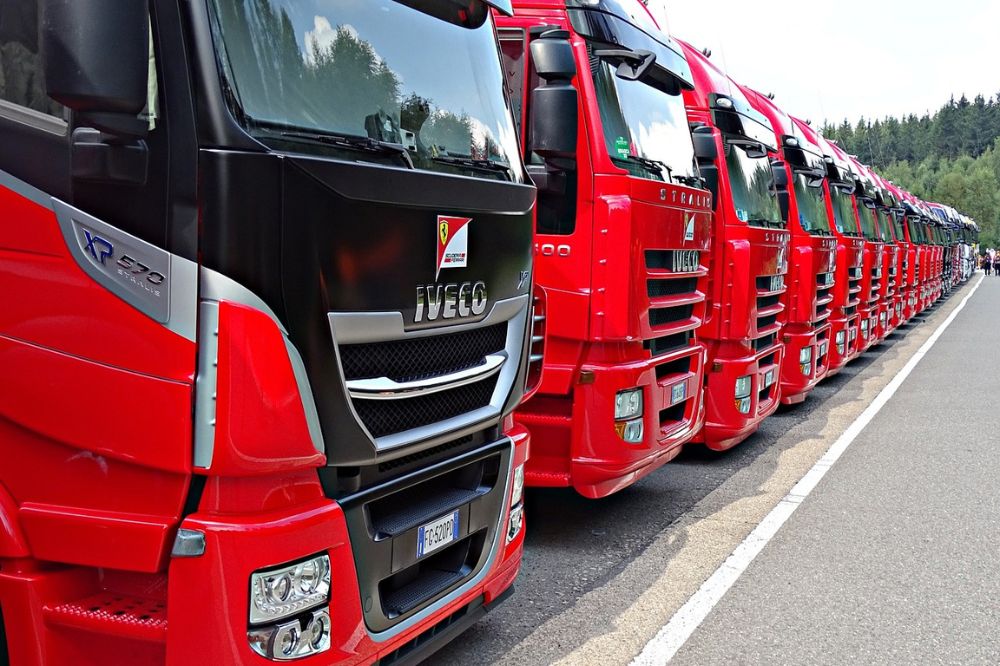
Factors That Influence The Cost of Fleet Insurance
Fleet insurance costs vary per insurer, but most of them consider the following factors to determine how much you’ll pay for coverage:
- Policy Options – a company that purchases various coverage options will pay higher insurance premiums annually than another that gets one comprehensive bodily injury and physical damage coverage.
- Industry risk – the business operations of some industries are riskier than others. Companies whose vehicles are constantly on the road are more likely to get involved in accidents and often pay more to insure their cars.
- Type Of Vehicles – the type of vehicles in your fleet also affects your insurance cost. Small cars are generally less costly to insure than large trucks.
- Age Of Vehicles – your fleet vehicles’ age also determines the total cost of your fleet insurance policy. Newer vehicles might cost you more to insure.
- Condition Of Vehicles – insuring well-maintained vehicles is cheaper because they are safer to operate.
- Value Of Vehicles – the value of your fleet vehicles also matters when insurers calculate your insurance rates. The higher the value, the higher your insurance premiums will be.
- Intended Use/cargo type – commercial auto insurance for a fleet that hauls hazardous materials is more expensive than a similar auto policy for transporting non-hazardous goods.
- Miles Driven – if your vehicles cover more miles, your insurance premiums will be higher because the chances of getting into accidents increase the longer a vehicle is on the road.
- Driver Experience – fleet insurance costs less if your fleet drivers have more experience and their driving records are clean.
- Medical Costs – medical payments also play a role in determining your insurance rates. If they increase, the amount required to pay for the treatment of those injured in an accident also increases. Some insurance companies pass these increased costs on to you by charging higher premiums.

Information You Need For Fleet and Commercial Truck Insurance
Insurance companies require several documents before underwriting a commercial fleet auto insurance policy. Here’s a list of the documentation you’ll need to apply for fleet insurance successfully:
- The insurance policy declarations page of your current commercial vehicle policy is essential. This document should contain all the information about your auto insurance policy – from what the policy covers to the amount of coverage, deductibles, and policy limits.
- The Vehicle Identification Number (VIN) of each commercial vehicle on your fleet and a summary of their safety features, if any.
- Your commercial driver’s license numbers (CDLs) and their driving histories, including any infractions, citations, or violations
- Your latest audited financial statements
- Copies of your permanent lease and individual trip lease contracts
- Copies of your International Fuel Tax Administration (IFTA) reports showing your vehicle mileage by state and the total mileage covered within a specified period.
- Copies of your fleet maintenance programs and federal compliance reviews of your safety ratings
Ways to Reduce Fleet Insurance Costs
Here are a few things you can do to lower insurance costs and increase your profit margins:
Match Your Insurance Limits To The Degree Of Risk At Hand
Tailor your commercial auto insurance coverage to your specific business needs. You’ll only pay for the essential coverage you need, thus avoiding wasting money on excess coverage.
Attain Excellent SAFER Scores
Safety and Fitness Electronic Records (SAFER) is FMCSA’s system containing safety-related profiles and data of motor carriers. Low surfer scores mean you have several traffic violations. With a low score, you’ll pay more to insure your vehicles adequately.
On the other hand, excellent SAFER scores mean your driving record is clean, and this helps you qualify for high-quality fleet insurance at cheaper rates.
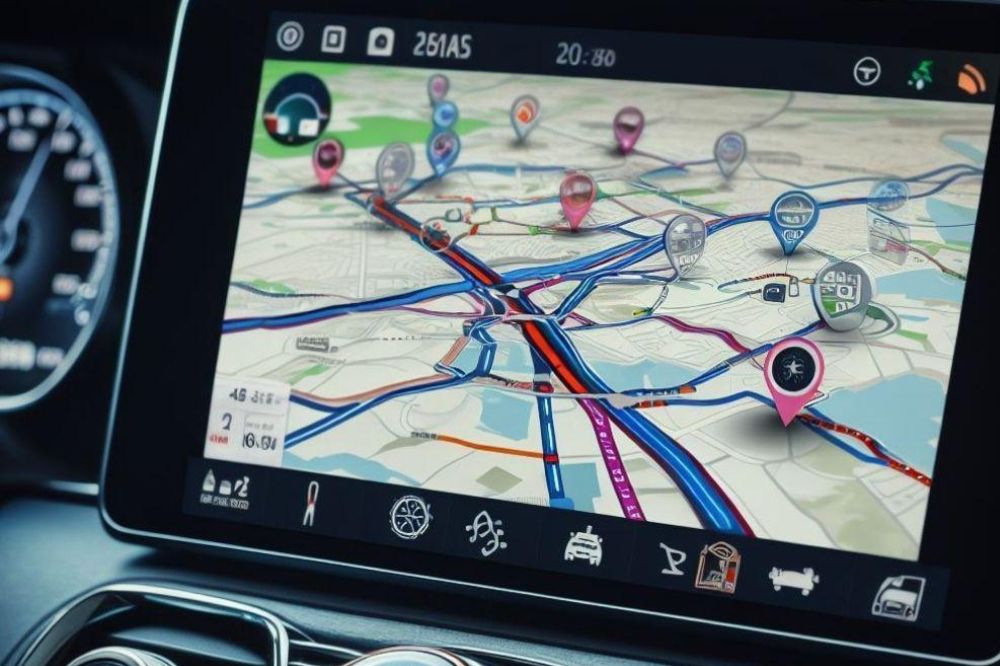
Increase Your Deductible.
Deductibles are a way of sharing FMCSA’s financial responsibility requirements for commercial vehicles with your insurance provider. It’s the amount you’ll pay out-of-pocket to cover losses after an accident before your insurer chips in. A higher deductible equals a more affordable commercial vehicle insurance policy.
Pay Your Insurance Premiums In A Lump Sum.
Paying your premiums in lump sum helps you qualify for significant discounts in most insurance firms.
Insure All Or Several Vehicles With One Insurance Firm
Most insurers also offer discounts and other incentives if the size of your fleet is large. Ask how many commercial vehicles you need to qualify for available discounts.
Improve Your Drivers’ Operating Behaviors.
Conduct ongoing training for your fleet drivers to help them maintain safe driving habits. Consistent, safe driving habits reduce your premiums.
Install Safety-Related, Risk Management Technologies
Installing safety-related technologies, like dashboard cameras, Electronic Logging Devices (ELDs), and GPS trackers, improve your vehicle’s safety while on the road and when not in use. Ensuring your vehicles are always safe increases your chances of purchasing comprehensive fleet insurance at low costs.
Final Thoughts
Fleet insurance is essential for companies with more than one business vehicle. It’s the key to securing the future of your business operation.
To purchase the right fleet insurance policy for your specific company, consider your fleet size, claims history, and the role of your vehicles in daily business use. Then shop around to identify the top 3 to 5 insurers who align with your needs and compare their insurance quotes before picking the most fitting commercial fleet insurer for your specific situation.
Check out our detailed guide about commercial truck insurance for small businesses to understand what to look for when evaluating your commercial auto coverage options. You can also visit our blog to stay updated on the latest news within the trucking industry.


